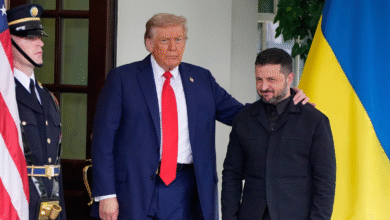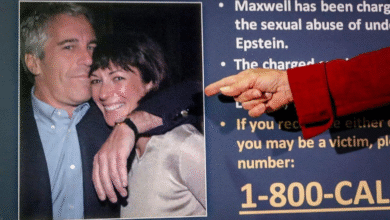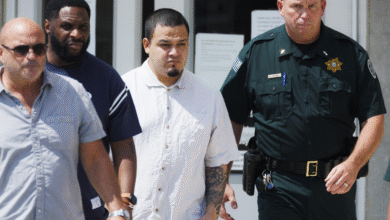Trump Ramaphosa Meeting: Analyzing Controversial Claims
The Trump Ramaphosa meeting turned into a flashpoint in U.S.-South Africa relations, highlighting the escalating tensions surrounding controversial topics such as the unfounded claims of ‘white genocide’ in South Africa. During this encounter, President Trump showcased videos he claimed depicted a humanitarian crisis against white South Africans, prompting a strong response from President Cyril Ramaphosa. This exchange not only exemplifies the rift in perceptions regarding refugee policies but also raises alarms about the implications for racial equity and governance in South Africa. As discussions unfold, the narrative around white genocide claims has surfaced again, reflecting concerns shared by various South African officials and citizens. Ultimately, this meeting underscores the complexities that define the relationship between the two nations against a backdrop of international scrutiny and local realities.
At the intersection of geopolitics and social issues, the recent gathering between Donald Trump and Cyril Ramaphosa illustrates a pivotal moment in South African-American affairs. The dialogue revolved around contentious claims of racial persecution in South Africa, with deep implications for how the U.S. views refugee admissions from the region. This meeting raised significant questions about South Africa’s internal policies and global perceptions, particularly regarding the narrative of violence directed at white citizens. Intense scrutiny of the comments made by both Trump and Elon Musk about racial dynamics in South Africa has sparked widespread debate about justice and representation. As the discourse around the ‘white genocide’ allegations heats up, it is essential to understand the nuances that shape these conversations on both domestic and international stages.
The Trump Ramaphosa Meeting: A Tense Exchange
The meeting between former President Donald Trump and South African President Cyril Ramaphosa showcased the escalating tensions between the two countries, particularly concerning racial issues. Trump presented controversial videos alleging that white genocide is occurring in South Africa, which marked a significant departure from diplomatic norms. Ramaphosa’s responses highlighted the complexities of South Africa’s multiparty democracy, emphasizing the need for dialogue rooted in reality rather than sensational claims.
Notably, the meeting began with an air of cordiality, only to take a heated turn when Trump pressed his unwarranted narrative about the plight of white South Africans. For Ramaphosa, this was not just a political disagreement but a broader representation of South Africa’s struggle against the perpetuation of false narratives that inflate racial tensions and ignore the country’s ongoing efforts to foster a united and equitable society.
U.S.-South Africa Relations: The Impact of Rhetoric
The recent exchange between Trump and Ramaphosa could be seen as a flashpoint in U.S.-South Africa relations, especially in light of Trump’s controversial remarks regarding white South African refugees. As these tensions build, many observers are left to ponder how such rhetoric affects foreign relations and perceptions within South Africa itself. Historically, the relationship between the U.S. and South Africa has been complex, characterized by periods of cooperation and confrontation.
Ramaphosa’s assertive response to Trump’s claims not only aimed to dispel the notion of a genocide but also positioned South Africa firmly in the debate surrounding racial equity and justice. This discourse underscores why U.S.-South Africa relations are susceptible to the influence of social media commentary and public perceptions, including prominent figures like Elon Musk, who have sparked further dialogue regarding racial policies in South Africa.
The Refugee Policy Debate: White South Africans and Beyond
During the Trump-Ramaphosa meeting, the discussion around refugee policy focused heavily on the admission of white South Africans into the U.S. amidst claims of persecution. This narrow framing highlights the challenges South Africa faces in conveying the broader context of its societal issues, including deep-rooted poverty and inequality, which affect various demographics. Ramaphosa challenged these assertions head-on, advocating for a nuanced understanding of South Africa’s internal dynamics and the importance of international dialogues free from racial bias.
The refugee policies implemented by the United States reflect a selective approach that has sparked significant criticism from within South Africa. While Trump painted a narrative of danger for white South Africans, the reality on the ground must consider the historical context of apartheid and ongoing transformations aimed at rectifying past injustices. Thus, Ramaphosa’s articulation of South Africa’s refugee policy is not merely a domestic issue; it resonates globally as an emblem of equitable governance.
Elon Musk’s Controversial Comments on South Africa
Elon Musk’s remarks regarding South Africa, particularly his vague comments on racial equity laws and their implications for people of all backgrounds, have added another layer to the contentious relationship between the U.S. and South Africa. Musk’s global stature makes his words impactful, especially when they align with sensational claims of genocide or persecution, potentially influencing the public narrative around race relations in his home country.
The intersection of Musk’s and Trump’s perspectives raises questions about the roles influential figures play in shaping international perceptions of racial matters. These narratives complicate discussions around social justice and equity while lending credence to divisive claims that may not reflect the realities faced by South Africans of all races. Ramaphosa’s challenges to these perspectives illustrate a determined effort to advocate for a more informed and less sensationalized understanding of his country’s issues.
Farm Violence and the Narrative of Targeting White Farmers
The narrative surrounding farm violence in South Africa often highlights the plight of white farmers, with claims suggesting they are disproportionately targeted. However, recent discussions around this issue reveal a more complex reality, emphasizing that violence on farms transcends racial lines and affects all communities. Ramaphosa was quick to clarify that only a fraction of farm attacks result in fatalities, thereby questioning the validity of claims made by Trump and others that imply a racial genocide.
Consequently, a balanced dialogue is essential in navigating these sensitive topics. By focusing on the broader context of violence and crime in South Africa, it becomes clear that framing these incidents within a racial narrative often oversimplifies and misrepresents the challenges faced by farmers, irrespective of their race. Ramaphosa’s nuanced response urges for a move beyond divisive claims and towards a more comprehensive understanding of South African society.
Legal Aspects of Land Expropriation in South Africa
The discussion on South Africa’s 2024 Expropriation Act reflects deeper sentiments concerning property rights and land distribution in a post-apartheid context. Trump’s criticism of the Expropriation Act as posing threats to property rights reveals a misunderstanding of South African policy aimed at rectifying historical injustices. Ramaphosa’s defense of the Act highlights its intention to promote equity and public access to land, challenging perceptions shaped by hyperbolic claims of land confiscation.
Understanding land policy through the lens of social justice rather than through the prism of fear is critical for both domestic and international observers. The Expropriation Act aims to ensure a fair and just process in land redistribution, essential for building an inclusive future while acknowledging the injustices of the past. Ramaphosa’s comments point towards an ongoing effort to demystify legislation that is often clouded by misinformation and divisive rhetoric.
Public Reactions to Trump’s Claims in South Africa
The public reactions in South Africa to Trump’s assertions of white genocide reflect a collective frustration with outside narratives that fail to engage with the country’s complex realities. Many South Africans, including officials and community leaders, voiced their dissatisfaction through social media and public statements, critically assessing Trump’s depiction of their nation’s socio-political landscape. This discourse emphasizes the importance of accurate representations in understanding South Africa’s progress since the end of apartheid.
Moreover, critiques of Trump’s claims signify a broader call for responsible dialogue that respects the dignity of all South Africans. By continuously confronting these divisive narratives, South Africa aims to reclaim its narrative and foster a more constructive dialogue about its ongoing challenges related to race, land, and justice. Ramaphosa’s leadership in this discourse invites a more genuine and reconciliatory approach to international relations.
Navigating Internet Service Operations in South Africa
The tension spilling over from the Trump-Ramaphosa meeting also found its way into discussions about internet service providers, with Musk’s comments highlighting the challenges of operating in South Africa. He claimed that his Starlink internet service faced regulations influenced by racial considerations, sparking a national debate on equity in technology access. This assertion introduces another layer to the already intricate dynamics of South Africa’s regulatory landscape and the ongoing conversations surrounding inclusivity.
Conversations around tech and access are critical as South Africa seeks to bridge digital divides while addressing historical inequalities. The implications of Musk’s claims urge perspectives that consider how technology can both unite and divide societies, warranting a reflection on the country’s quest for an accessible digital future. Ramaphosa’s engagement in this discussion emphasizes the necessity for robust policies that empower all South Africans while navigating the complexities of a modern economy.
Global Perspectives on South Africa’s Challenges
Criticism from South Africa regarding global narratives on genocide, including comparisons to ongoing conflicts like the situation in Gaza, underscores the interconnectedness of international human rights dialogues. By speaking out against perceived injustices, South Africa aims to position itself as a proactive participant in global partnerships, fostering solidarity among nations facing similar challenges. Such dialogues challenge the simplified narratives often presented by influential figures and media.
Navigating these complex international relations requires active engagement from countries like South Africa, which strive to present their perspectives on justice and equity. Ramaphosa’s focus on addressing global perceptions demonstrates South Africa’s commitment to contributing constructively to international discussions, encouraging a shared approach to tackling issues of inequality and violence that transcend national borders. In doing so, South Africa aims to redefine the narratives traditionally associated with its struggles.
Frequently Asked Questions
What were the key points of the Trump Ramaphosa meeting regarding white genocide claims in South Africa?
During the Trump Ramaphosa meeting, President Trump presented videos asserting claims of ‘white genocide’ in South Africa, which were firmly denied by President Cyril Ramaphosa. This meeting highlighted contrasting narratives about US South Africa relations, particularly amid rising tensions over refugee policies and violence on farms.
How did Cyril Ramaphosa respond to Trump’s comments on US South Africa relations?
Cyril Ramaphosa responded to Trump’s comments on US South Africa relations by rejecting the narrative of ‘white genocide.’ He emphasized that South Africa is a diverse democracy and no such acts of violence or persecution exist against any race, countering Trump’s claims during their meeting.
What issues did Trump and Ramaphosa discuss related to South Africa’s refugee policy?
In the meeting, Trump raised concerns about the US refugee policy allowing white South Africans to seek asylum due to claims of persecution. Ramaphosa clarified that South Africa does not engage in hatred or violence against any group, challenging the basis for these refugee admissions.
What was the significance of Elon Musk’s comments during the Trump Ramaphosa meeting?
Elon Musk’s comments added to the complexity of the Trump Ramaphosa meeting, as he echoed claims of a genocide against whites in South Africa. This perspective intensified the already strained US South Africa relations and contributed to ongoing debates about racism and internet service operations in the country.
Did the Trump Ramaphosa meeting address farm violence in South Africa?
Yes, the Trump Ramaphosa meeting touched upon farm violence, mentioning that there were reports of murders on farms. However, Ramaphosa highlighted that authorities did not specify the racial identities of victims, challenging Trump’s narrative of targeted violence against white farmers.
How did the Expropriation Act come up during the Trump Ramaphosa meeting?
The Expropriation Act was discussed at the Trump Ramaphosa meeting, with the U.S. criticizing it as a threat to property rights. Ramaphosa defended it as a lawful process aimed at equitable land access and not as a means of confiscation, highlighting South Africa’s approach to land reform.
What broader themes emerged from the Trump Ramaphosa meeting regarding racial narratives?
The Trump Ramaphosa meeting underscored broader themes of racial narratives, particularly the conflicting views on genocide and persecution. This dialogue reflects the ongoing complexities in US South Africa relations amid rising discourse around equity laws and allegations of racism propagated by figures like Trump and Musk.
How does the dialogue in the Trump Ramaphosa meeting impact global perceptions of South Africa?
The dialogue in the Trump Ramaphosa meeting may affect global perceptions of South Africa by portraying it as a nation grappling with racial tensions, even as South African officials assert their commitment to a democratic and inclusive society, countering claims of violence and genocide.
| Key Point | Details |
|---|---|
| Trump’s Claims | Trump asserted that white South Africans are facing genocide, a claim refuted by Ramaphosa and South African officials. |
| Video Presentation | During the meeting, Trump showed videos alleging persecution against white South Africans, which Ramaphosa denounced. |
| Refugee Admissions | Trump referenced concerns about U.S. refugee policies favoring white South Africans while excluding others. |
| Farm Violence Discussion | Trump highlighted farm murders but failed to provide racial context, which undermined claims of targeted violence. |
| Expropriation Act Controversy | The U.S. criticized South Africa’s Expropriation Act as a threat to property rights; Ramaphosa clarified its purpose. |
| Musk’s Statements | Elon Musk contributed to the discussion, asserting that his services were barred due to racial factors, sparking public debate. |
| Broader Context | South Africa’s stance on Israel’s actions in Gaza was mentioned, linking it to claims of genocide similar to those proposed by Trump. |
Summary
The Trump Ramaphosa meeting showcased a significant moment in U.S.-Africa relations, characterized by controversial statements and a focus on racial dynamics in South Africa. Trump’s unfounded claims of genocide against white South Africans created a tense interaction, with Ramaphosa strongly defending the South African government’s stance on racial equality and democracy. This meeting not only highlighted the complexities surrounding refugee admissions and farm violence but also raised broader issues about governance and international perceptions of South Africa. As both economies and societies navigate this tense discourse, it remains crucial to foster a more informed and balanced dialogue.




